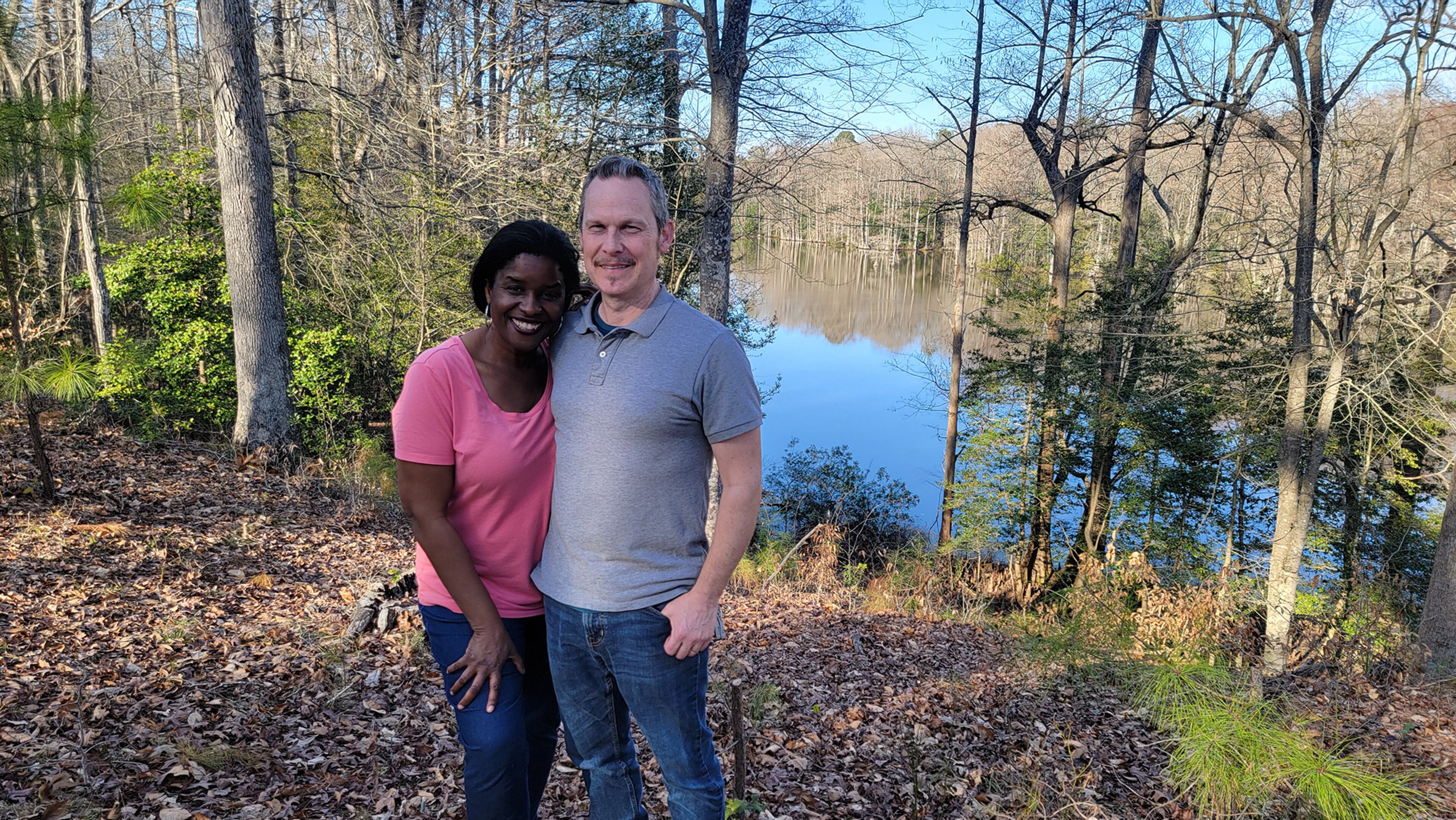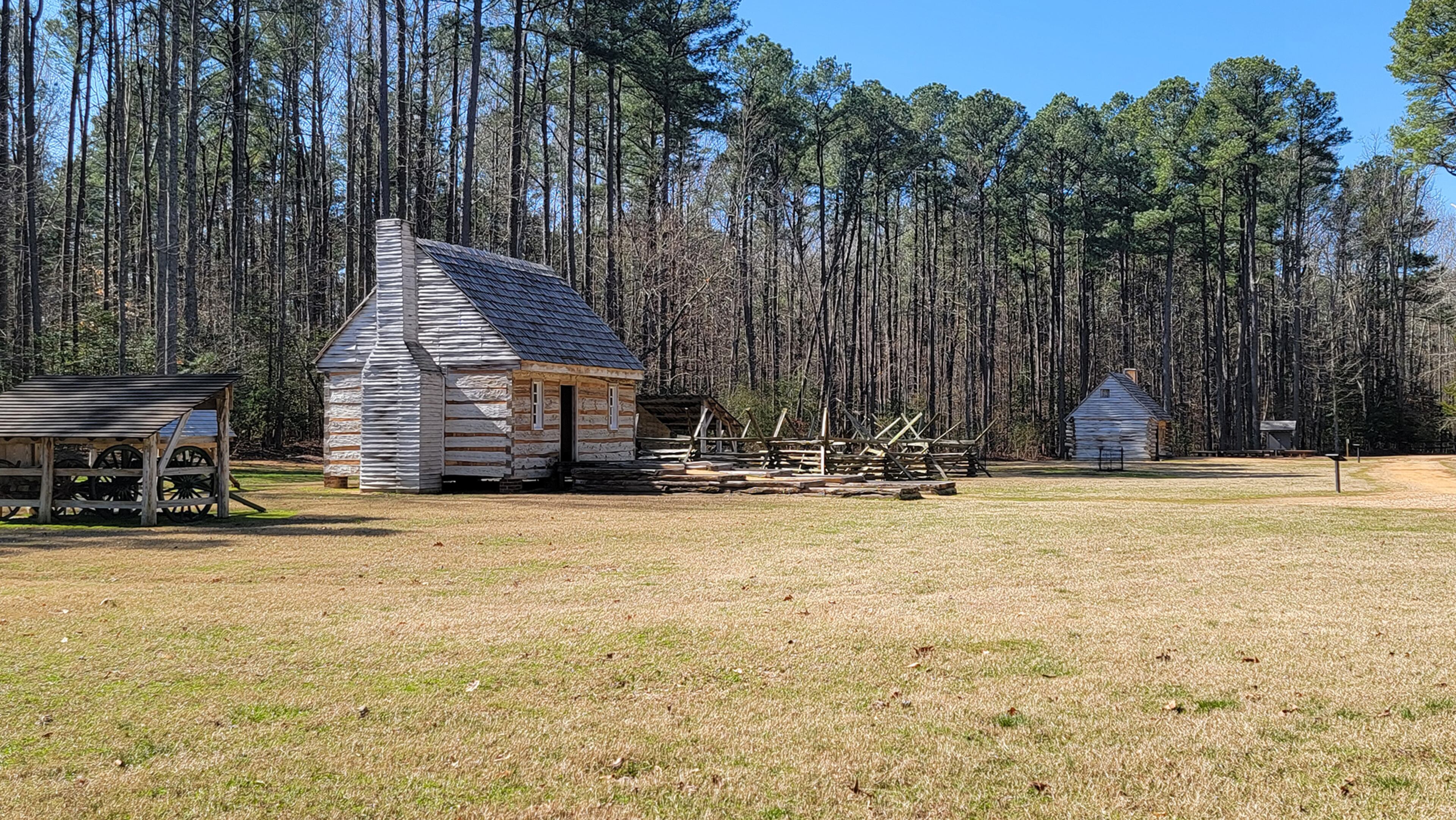Colonial Williamsburg shines a light on Black history

Colonial Williamsburg, the country’s largest living history museum, has been bringing to life the Founding Fathers and reenacting some of America’s defining origin moments through costumed interpreters since it became a tourist attraction in the 1930s.
For decades, stories of life in the Virginia colony’s capital founded in 1699 were predominately Eurocentric. Today, Williamsburg is much more inclusive, offering tours in the restored historic district and beyond that highlight the lives of the enslaved and freed Black population that helped build this nation.
One of the most significant additions to Colonial Williamsburg’s Black history narrative is the pre-Revolutionary Bray School, which was recently relocated there from the William & Mary college campus. It’s one of the oldest surviving buildings in the country where enslaved and free Black children were educated. Hundreds of students attended the school between 1760 to 1774 when its only teacher died.
Known as the Bray-Digges House, the building was modernized and repurposed many times over the years, its history all but forgotten. A William & Mary professor rediscovered the building that was hidden in plain site on campus for years.
We Shall Overcome: A Black History Experience is a tour of Colonial Williamsburg that highlights the significance of the Bray School and other aspects of Black history, illustrating the ways race, religion and education intersected in Colonial America and beyond.
The restored school opens to the public in November and will feature programming that interprets Black life in the capital of the Virginia colony, Britain’s largest settlement in the New World. For now, only the exterior is on view.
Established by an Anglican charity in England, the faith-based institution instructed children in Christianity and reading, as well as a proslavery doctrine.
“They were trying to teach the slaves that their lot in life was ordained by God,” tour guide Vincent Abruzzi explained. “One of their tenets was that Christians are obedient and faithful to their masters.”

Nevertheless, the school did spread literacy. There’s evidence that at least some students were empowered by their knowledge.
Gowan Pamphlet, founder of the First Baptist Church of Williamsburg and one of the first ordained Black ministers in the country, was enrolled at the school as an enslaved child. (He was later emancipated.) What began in 1776 as a clandestine meeting of Black worshippers in the woods has survived as one of the oldest African American congregations in the country.
Just blocks from the Bray School stands the current church built in 1956.
Williamsburg has a number of other points of interest that expand on the Black history of Colonial life.

Jolly’s Mill Pond
Participants in a heritage cooking class at Jolly’s Mill Pond, a 100-acre agritourism attraction that interprets historic American Indian and Black foodways, wait for the flesh of long neck pumpkins to turn soft as they roast over an open fire.
Pumpkin stew is on the menu today, and culinary director Justin Luis Diaz takes advantage of the downtime around the fire to share some of the dish’s back story. Pumpkins and other squash, one of the oldest cultivated foods in the world, were critical to Indigenous cultures, he explains. Beans and corn were also staples, and the vegetables will find their way into the stew.
The ingredients come from local heritage farms and a small garden on the property.
West Africans also left their mark on early Virginia’s culinary traditions, he said. Most notably by introducing peanuts.
“Peanuts are a highly nutritious and highly adaptable crop that quickly became an important cultural staple,” Diaz explained.

Cooking classes are just one reason visitors come to Jolly’s Mill Pond, owned by Bill and Angie Kane. The couple, who inherited the property in 2011, guide tours of the serene woodland that once contained a wooden grist mill dating back to the 19th century. A small earthen dam built by enslaved laborers to power it remains, providing a reminder of what a crucial community resource the mill was.
Some of Williamsburg’s old-line Black families have shared stories with the Kanes of their ancestors walking to the mill for their corn meal and flour.
The land and the old miller’s house was a summer getaway for Bill’s family when he was a child. He never thought much about the history until he became its owner. Now, the Kanes are collaborating with a local historian to uncover as much as possible.
According to census records, the miller, Absalom J. Browning, resided there in the 1850s with his family and two enslaved laborers.
Someday, the couple hopes to build a replica of the grist mill. In the meantime, they continue to host educational programs centered on Virginia’s culinary heritage.

Freedom Park
Freedom Park is a 600-acre wooded oasis that includes a botanical garden and miles of hiking and biking trails, but it’s more than a beautiful recreational spot. It’s also the site of one of the country’s first free Black settlements. Based on historical and archaeological evidence, replicas of three cabins were built on the site to illustrate what life was like for Williamsburg’s small freed Black population.
Williamsburg Walking Tours provides tours of Hot Water tract, established when William Ludwell Lee of Green Spring Farm freed all 30 of his slaves in his will. A copy of the document is available in the interpretive center. He stipulated that adequate housing be built for the newly freed Blacks who chose to stay and that they be allowed to live on the land rent free for 10 years.
It’s hard to know why Lee freed his slaves, but it’s possible he was influenced by his uncle, Arthur Lee, a fiery abolitionist.
The one-room cabin owned by Juba Lightfoot demonstrates his skill as a bricklayer. It contains wooden floors, at a time when dirt floors were common, as well as plastered walls.
By contemporary standards, this tiny home is very modest, but Trish Thomas, co-owner of Williamsburg Walking Tours, pointed out that during the 18th century, much of the living took place outdoors.
In the last two decades of the 18th century, many freed slaves made their homes in the Hot Water tract, working as farmers and craftsmen. But freedom was relative. Because white colonists were often suspicious of free Blacks, laws were enacted to restrict their rights.
“It was like living on the edge of a sword,” Thomas said. “Any time you had a community of free Blacks around enslaved Blacks, there was a fear that the free would awaken a yearning for freedom in the hearts of the enslaved.” (As if they didn’t already long for freedom.)
Stories of British colonists in Williamsburg have been well documented. Now it’s possible to peel back the layers of European history to reveal African American narratives.
IF YOU GO
Williamsburg, Virginia, is 577 miles northeast of Atlanta via I-85. Or take a 1.5-hour flight from Atlanta to Richmond, Virginia, and drive one hour southeast via I-64.
Activities and Attractions
Colonial Williamsburg. $28.99-$49.99. 101 Visitor Center Drive, Williamsburg, Virginia. 888-965-7254, www.colonialwilliamsburg.org
Jolly’s Mill Pond. Cooking classes $130. 2756 Jolly Pond Road, Williamsburg, Virginia. 757-741-8663, www.jollysmillpond.com
We Shall Overcome: A Black History Experience. Tour $25. 816-722-7363, www.wejunket.com
Freedom Park. 5537 Centerville Road, Williamsburg, Virginia. 757-259-4022, www.jamescitycountyva.gov
Williamsburg Walking Tours. Provides tours of Freedom Park and other historic sites. 757-634-2452, www.williamsburgwalkingtours.com
Where to Eat
Tipsy Beans Café. Black-owned brunch spot. Entrees $8-$20. 1430 High St., Williamsburg, Virginia. 757-808-5011, www.tipsybeanscafe.com
Opus 9 Steakhouse. Upscale steakhouse. Entrees $39-$104. 5143 Main St., Williamsburg, Virginia. 757-645-4779, www.opus9steakhouse.com
Where to Stay
Williamsburg Lodge, Autograph Collection. Located steps from Colonial Williamsburg. $199 and up. 310 S. England St., Williamsburg, Virginia. 757-220-7976, www.colonialwilliamsburghotels.com
Williamsburg Inn. Luxury hotel within walking distance of Colonial Williamsburg. $429 and up. 136 Francis St. East, Williamsburg, Virginia. 757-220-7978, www.colonialwilliamsburghotels.com


